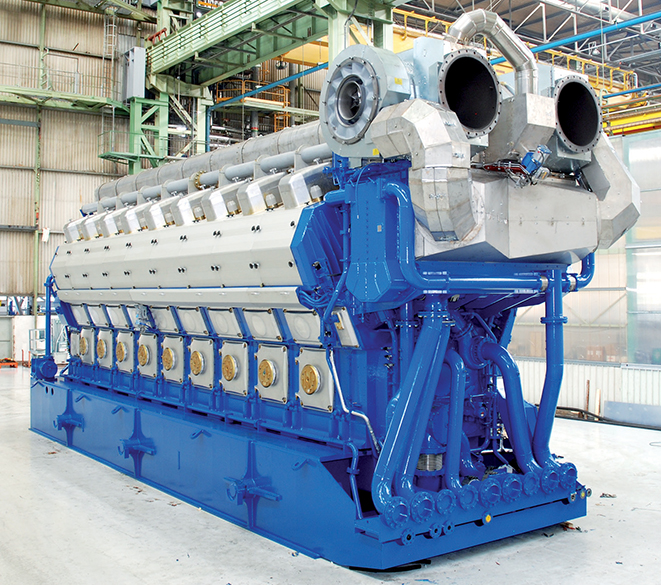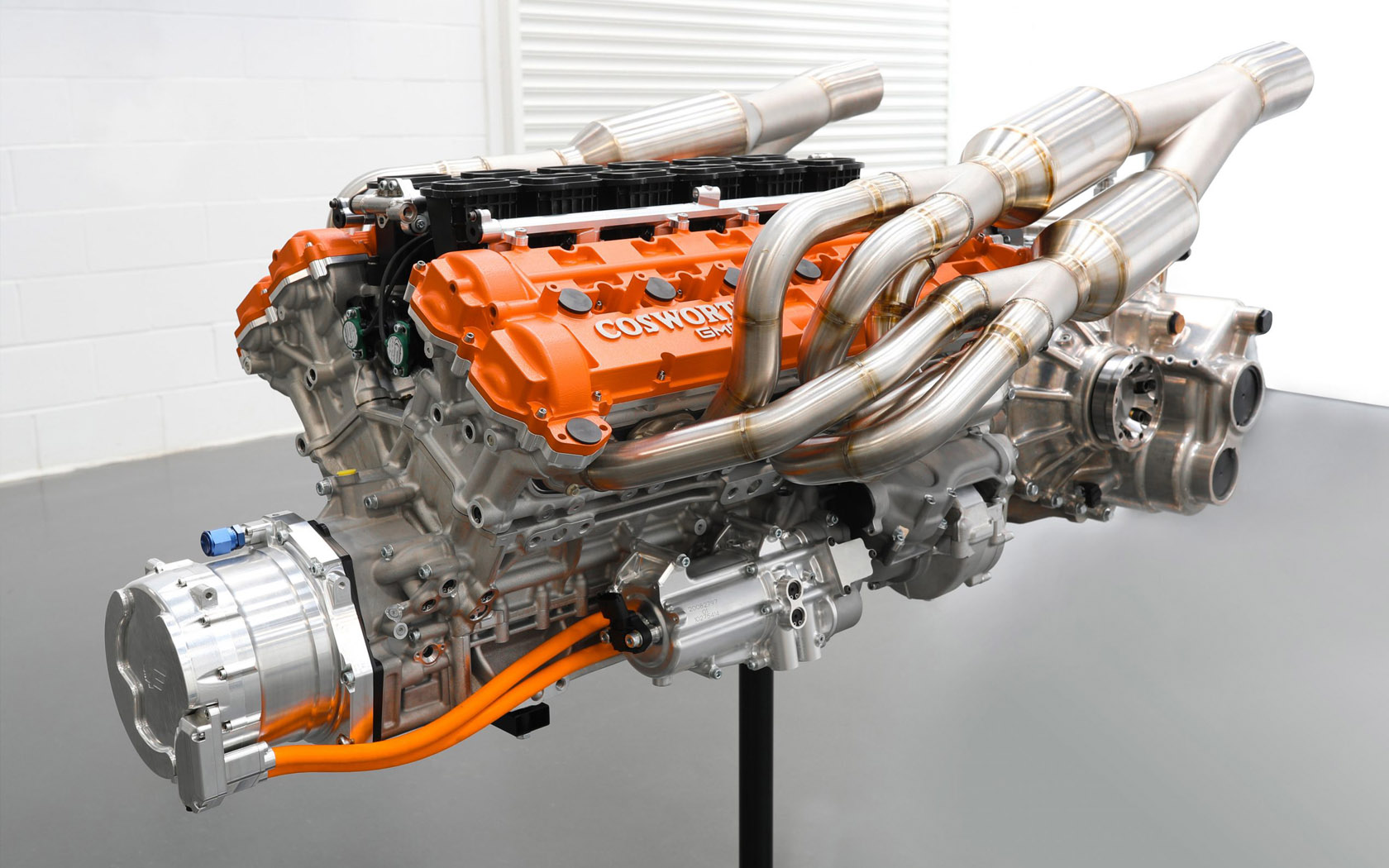Discover a Vast Array of Engines for each Vehicle and Objective
The vehicle landscape is significantly intricate, with a varied variety of engine kinds created to fulfill details efficiency and effectiveness demands across various vehicle categories. From the high-performance engines that power cars to the fuel-efficient options tailored for daily commuting, the options are huge and differed. Additionally, heavy-duty engines serve the demands of job automobiles, while environmentally friendly alternatives are gaining grip in the search of sustainable transportation. Recognizing these differences is vital for making notified decisions, specifically as arising innovations continue to form the future of automobile engineering. What effects might these improvements hold for consumers and suppliers alike?
Sorts Of Automotive Engines
Automotive engines can be categorized right into several unique types, each created to meet certain performance and effectiveness needs. The most usual categories consist of interior burning engines, electrical engines, and crossbreed systems.

Electric engines, on the other hand, run on electric power kept in batteries, giving immediate torque and absolutely no emissions. These engines are ending up being progressively preferred due to improvements in battery technology and the expanding focus on sustainability.
Hybrid systems integrate both inner combustion and electric engines, making it possible for vehicles to enhance gas performance and decrease discharges by flawlessly switching between power resources. Each engine type provides its drawbacks and advantages, affecting factors such as car layout, meant usage, and market demand. Understanding these differences is vital for manufacturers and consumers alike when choosing the appropriate engine for their specific requirements.
Performance Engines for Sports Cars
Performance engines for cars are specifically engineered to deliver enhanced dexterity, power, and rate, establishing them in addition to typical automotive engines. These engines often utilize innovative modern technologies such as turbocharging, turbo charging, and variable valve timing to optimize efficiency and responsiveness.
Generally, performance engines are made with greater compression proportions, which permit for higher energy removal from fuel. This results in impressive horse power and torque figures, enabling quick acceleration and higher leading speeds. Furthermore, the light-weight materials used in these engines, such as light weight aluminum and carbon fiber, add to decreased total automobile weight, boosting handling and maneuverability.
Engine setups like V6, V8, and even hybrid systems are common in efficiency sports automobiles, each offering unique advantages in terms of power shipment and driving characteristics. The tuning of these engines is additionally vital; many suppliers optimize the engine administration systems to provide an electrifying driving experience, typically consisting of sport settings that readjust throttle reaction and equipment changes.
Efficient Engines for Daily Commuters
In the world of daily commuting, reliable engines play an important duty in optimizing fuel economic situation and reducing exhausts while providing reputable efficiency. As urban populations expand and environmental concerns heighten, the need for lorries geared up with effective powertrains has actually risen.
Modern engines designed for daily commuters usually incorporate technologies such as turbocharging, direct fuel shot, and crossbreed systems. Turbocharging boosts engine performance forcibly more air into the combustion chamber, enabling smaller, lighter engines that do not compromise power outcome. Straight gas injection improves fuel atomization, resulting in far better burning and raised performance.
Crossbreed engines, incorporating internal burning with electrical power, more augment gas economy, particularly in stop-and-go traffic, where traditional engines official website can suffer from inefficiencies. Electric motors assist throughout velocity and can run separately at low speeds, decreasing overall gas consumption.
Furthermore, developments in engine administration systems and lightweight materials add dramatically to reliable engine style. By focusing on efficiency, durability, and ecological sustainability, makers continue to deliver engines that not just satisfy the demands of daily commuting however likewise align with international initiatives to decrease carbon impacts.
Heavy-Duty Engines for Job Automobiles
Heavy-duty engines for job cars are routinely crafted to provide remarkable torque and reliability under requiring conditions. These engines are made to do in environments where typical engines may falter, such as building websites, logging operations, and agricultural settings. The key focus of sturdy engines is their capability to generate high degrees of power while maintaining durability over expanded periods of procedure.
Generally, sturdy engines use innovative materials and durable construction strategies to endure the roughness of heavy work. Attributes such as strengthened cyndrical tube blocks, enhanced cooling systems, and progressed fuel shot modern technologies contribute to their performance. These engines frequently run at reduced RPMs, which helps to enhance gas efficiency while supplying the essential power for hauling and carrying.
In enhancement to mechanical effectiveness, heavy-duty engines are typically outfitted with sophisticated electronic control systems (ECUs) that handle efficiency, exhausts, and diagnostics. This integration enables much better surveillance and upkeep, guaranteeing that work automobiles continue to be functional and reliable.
Ultimately, heavy-duty engines are a necessary part in the performance of numerous sectors, giving the essential power and dependability to take on the hardest of jobs.
Eco-Friendly Engine Options
The expanding focus on sustainability has actually brought about the growth of environmentally friendly engine options that prioritize reduced emissions and improved gas performance. These engines are made to decrease the ecological effect of automobiles while still providing the performance and reliability anticipated by customers.
Amongst the most site link noteworthy environmentally friendly options are electrical and hybrid engines. Crossbreed engines incorporate standard internal combustion engines with electrical propulsion, enabling decreased fuel intake and reduced greenhouse gas discharges. Electric engines, on the other hand, run completely on battery power, producing absolutely no tailpipe exhausts and contributing to cleaner air quality.
One more encouraging advancement is the advancement of biofuel engines, which use renewable resources, such as plant products, to power cars (Engines For Africa). By making use of biofuels, these engines can decrease dependence on fossil fuels and reduced overall carbon impacts

As the automobile sector progresses, environmentally friendly engine options will certainly play an important duty in driving the shift towards even more lasting transportation remedies.
Final Thought
The automotive market offers a varied array of engines created to meet different lorry requirements and objectives. From high-performance engines that enhance cars capabilities to effective versions prioritizing fuel economic situation for everyday travelers, each kind serves a certain feature. Durable engines accommodate robust work lorries, while environmentally friendly alternatives, such as electric and biofuel engines, advertise lasting transportation. This thorough range makes sure that all driving needs are addressed, adding to advancements in automobile modern technology and ecological stewardship.
